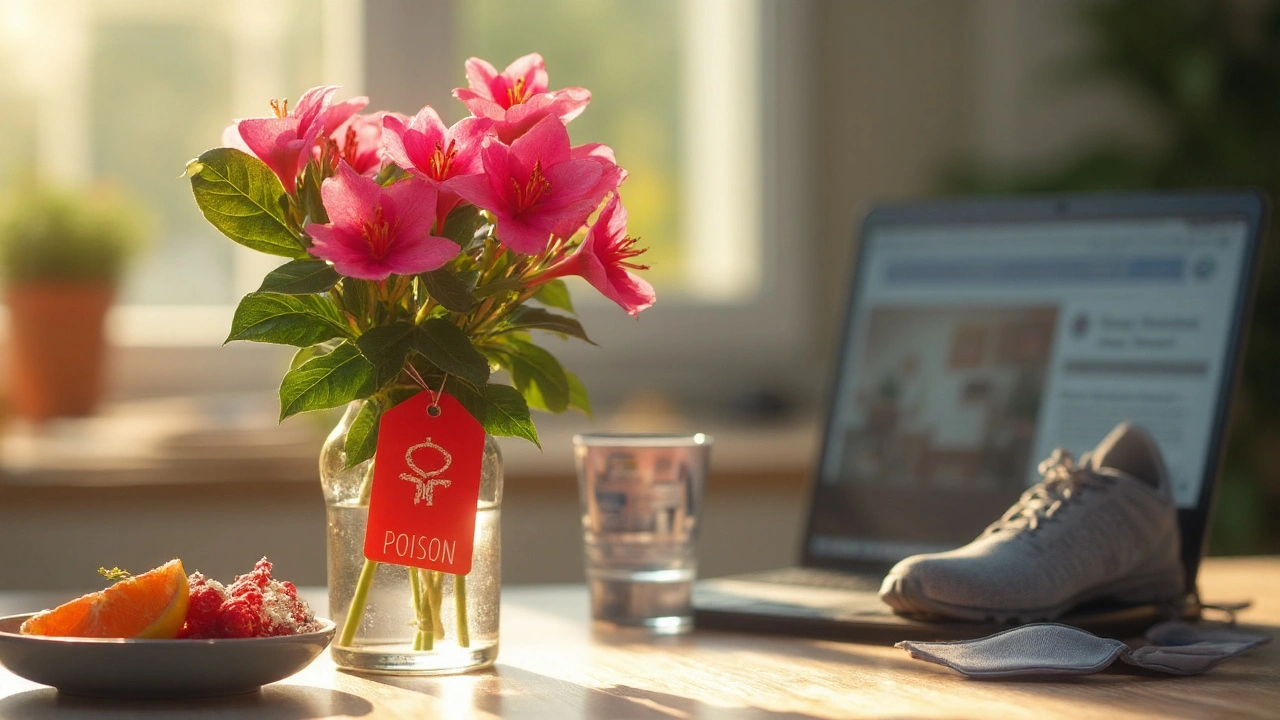
Oleander for Immunity? Toxic Risks, Evidence, and Safer Alternatives (2025 Guide)
Heard oleander boosts immunity? It doesn’t. It’s poisonous. Here’s the science, safety warnings, New Zealand context, and proven alternatives that actually help.
When you pick up a bottle of pills or a bottle of liquid medicine, it’s easy to assume everything is fine. But a quick check with the New Zealand Poisons Centre can save you a lot of hassle, and sometimes even a trip to the hospital. This page pulls together the most useful advice you’ll need to stay safe with medicines, supplements, and even household chemicals.
The Poisons Centre is staffed by pharmacists and medical experts who know the ins and outs of drugs sold in New Zealand. They can tell you if a medication interacts badly with something else you’re taking, how much is too much, and what to do if you think you’ve been poisoned. Their guidance is free, confidential, and available 24/7 – a big plus when an accidental spill happens at night.
One of the biggest problems people face today is buying medicines online without checking if the seller is legit. The Centre can help you spot red flags like unbelievably low prices, no prescription requirement, or a website that looks shaky. If you’re unsure, a quick call can confirm whether that online pharmacy is registered with Medsafe.
1. Read the label every time. Even if you’ve taken the same pill for years, the dosage can change or a new warning might appear. Look for the expiration date, storage instructions, and any special notes about food or alcohol.
2. Keep a medication list. Write down every prescription, over‑the‑counter drug, and supplement you use. Share this list with your doctor, pharmacist, and anyone who might help in an emergency. The Poisons Centre can use it to spot dangerous combos.
3. Store out of reach of kids. Many poisonings happen because a child finds a bottle that’s not locked away. Use a high shelf or a locked cabinet, and keep the original packaging so you know the concentration.
4. Know the symptoms of an overdose. Nausea, dizziness, trouble breathing, or severe headache can mean you’ve taken too much. If you see any of these, call the Poisons Centre right away – they’ll tell you whether you need to go to the ER.
5. Verify online purchases. Before you click “buy,” check the pharmacy’s registration number on the Medsafe website. Look for a clear privacy policy and a real physical address. If anything feels off, skip the purchase.
Some common questions the Centre gets include:
Keeping these basics in mind will make most medication mishaps avoidable. When in doubt, the New Zealand Poisons Centre is just a phone call away, and they’ll give you the clear answer you need without any medical jargon.
Remember, safe medication use isn’t just about reading a leaflet – it’s about staying informed, asking questions, and using the resources that are already there. The Poisons Centre is a trusted partner in that effort, helping you protect yourself and your loved ones every day.

Heard oleander boosts immunity? It doesn’t. It’s poisonous. Here’s the science, safety warnings, New Zealand context, and proven alternatives that actually help.